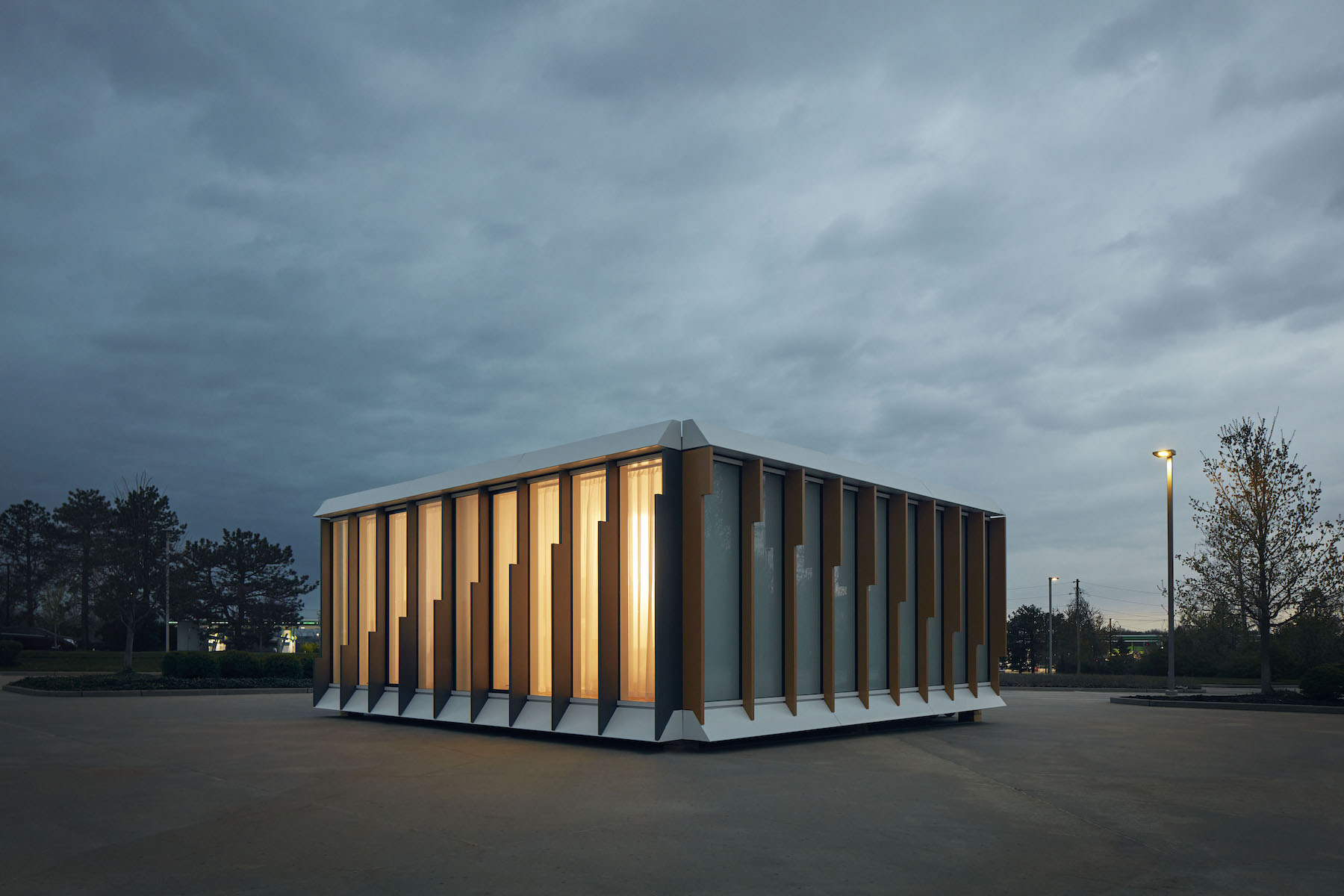Last May, MiTek, a construction software and building services company that’s part of Warren Buffett’s Berkshire Hathaway conglomerate, formed a partnership with Danny Forster & Architecture to promote modular design and construction, a building method that has made inroads into certain sectors (hotels, healthcare, schools, warehouses), but has struggled to attain profitability.
The core of this partnership, known as the Modular Initiative, is its Modular Activation Platform that purports to simplify constructing a modular building by providing everything developers and contractors need to complete the project.
As reported in Fast Company, the joint venture has some advantages over other modular-focused companies, not the least being the financial backing of its parent. Danny Foster & Architecture’s previous design work has included the 168-key AC Nomad Hotel by Marriott in Manhattan, which at 26 stories would be the tallest modular hotel in the U.S. MiTek’s businesses include manufacturing of structural steel, high-rise building facades, and fireproof wallboards.
Since May 2017, when Marriott International unveiled its plans to expand its initiative to drive the adoption of modular construction of hotels in the U.S., industry watchers have been waiting for modular manufacturing for commercial construction to take off. But that trajectory has been less than encouraging, especially after high-profile prefab practitioners Katerra and Skender Manufacturing folded, victims of a pandemic that slowed construction, and, in Katerra’s case, financial and managerial disarray.
And on June 8, the Wall Street Journal reported that the 360-ft-tall AC Nomad Hotel project—which is not using the MiTek approach—had stalled, with its 100 modules made by Skystone Modular in Poland sitting on a dock in Brooklyn, and the project’s owner—the developer 842 Enterprises, controlled by the Chun family—scrambling to raise additional funding to finish the $80 million hotel.
LOGISTICS COSTS STILL A ROAD BUMP
On the other hand, there have been successes for modular in the hospitality arena. The developer citizenM has built several modular hotels in the U.S. In Kings Mountain, N.C., the Catawba Nation this summer is opening a “prelaunch” casino, assembled from prefabricated modules, that will have 500 slot machines and serve as a first stage for the Nation’s Two Kings Casino Resort, which is scheduled to open next year. And Marriott continues to favor modular construction for its urban-centric AC Hotels brand.
“There’s a lot of curiosity around modular construction,” observes Sergio Saenz, Principal and Director of Hospitality for HKS. Mark Pratt, LEO A DALY’s Global Hospitality Practice Leader, says more clients are inquiring about modular construction, and his firm is using modular guest bathroom options in some of its current hotel projects.
But so far, Shawmut Design & Construction and its hotel clients have eschewed modular construction methods. Randy Shelly, the firm’s Executive Vice President of Hospitality, explains that the hotel/resort sector has been slower to adopt modular construction for two reasons: the “significant” cost of transporting modules long distances, and the design limitations of modular production at a time when hotels are seeking ways to differentiate themselves aesthetically.
Shelly did note, however, that as new regional production facilities open, transportation costs could fall and make modular a more viable option for hotel construction.
Related Stories
Events Facilities | Apr 27, 2017
20-acre lagoon highlights $1.5 billion Paradise Park planned for Las Vegas
The Wynn Resorts board recently gave the go-ahead for the project, which may begin construction on its first phase as early as December.
Hotel Facilities | Apr 12, 2017
Hotels embrace place
Today’s hospitality environments emphasize unique, localized experiences to attract and engage guests.
Hotel Facilities | Apr 11, 2017
What can hotels learn from Airbnb?
This new kid on the hospitality block is actually an extension of a long-standing tradition of lodging alternatives that range from renting villas in Italy to choosing timeshare properties in Florida.
Reconstruction & Renovation | Mar 30, 2017
Waldorf Astoria New York to undergo massive renovation
Skidmore, Owings & Merrill and Pierre-Yves Rochon prepared the designs for what will be one of the most complex and intensive landmark preservation efforts in New York City history.
Hotel Facilities | Mar 14, 2017
Hotels are becoming the favored places for retailers and consumer products to bolster their brands
Several high-profile names have launched hospitality divisions, often with well-established management partners.
Hotel Facilities | Mar 9, 2017
Robots. 70’s Retro. Biophilia. Co-Living Spaces. Two leading architectural firms single out 18 trends for hospitality this year.
HKS and HBA even see a demand for hotels catering to “agritourism.”
Mixed-Use | Mar 1, 2017
New hotel and residential tower coming to San Francisco’s Transbay neighborhood
The ground-up development will feature 255 hotel rooms and 69 residential units.
Hotel Facilities | Feb 20, 2017
The future of hotel design: Human-centered
Change is inevitable and it impacts on everything, not least on the way we design.
Market Data | Feb 16, 2017
How does your hospital stack up? Grumman/Butkus Associates 2016 Hospital Benchmarking Survey
Report examines electricity, fossil fuel, water/sewer, and carbon footprint.
Hotel Facilities | Feb 15, 2017
Morphosis redesigns Swiss hotel rooms as custom ‘aesthetic experiences’
The redesigned rooms focused on scale, color, tactility, unexpected form, and connections to the natural context.
















